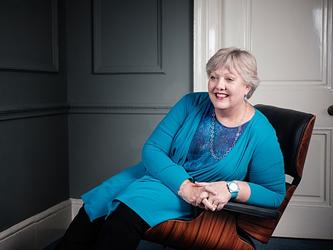Belinda Beeftink on how consumer behaviour is changing
_crop[id:2496022].jpg)
1: The Institute of Practitioners in Advertising (IPA) was set up in World War I to help support the war effort. How can advertising aid society’s recovery from the pandemic?
Responsible advertising can help people make better choices. The pandemic has been an accelerator for lots of change, including people’s growing concern about sustainability and climate change.
If brands and advertising can reflect those views, it will help grow the momentum needed to really make a difference.
2: What is the biggest measurement challenge for advertisers currently?
It is to understand the full picture for video delivery, whether it be YouTube or ITV. We need to understand what value each kind of video platform can deliver to clients.
The challenge here is to make sure that the measurement used is even-handed and does not support one channel over another. Whatever solution we arrive at will need to be cost-effective and have cross-industry support.
3: What changes in media consumption brought about by the pandemic do you see lasting?
As our IPA TouchPoints data indicates, the rise of subscribers to platforms such as Netflix, Disney+ and Amazon Prime Video will continue to grow. However, this does not mean we have fallen out of love with broadcast TV.
As long as the content is good, the audience will follow. We only need to look at the record-breaking audience figures for Line of Duty to know that is true.
4: What has been the most significant shift in consumer behaviour since the launch of the TouchPoints study 15 years ago?
Undoubtedly, the most significant shift has been the rise of the mobile phone. In 2005, less than 2% of us had a smartphone, while today it is 88%. Much of what we now do on our phones uses the internet – 30% of us shop via our mobile.
The other major shift has been in our access to media via digital devices. People are watching video, reading news and magazines, and listening to the radio on PCs, tablets and mobile phones.
5: How do you think the industry will adapt to the move away from third-party cookies?
There is no doubt that, increasingly, consumers find some advertising too repetitive and the frequency excessive.
Moving away from third-party cookies will mean that advertisers will lean more heavily on their own customer data, which can be integrated with other industry data to provide a complete picture of their consumers in a consensual and transparent way.
We may need to go back to basics and ensure that our advertising is contextually relevant and appreciated rather than viewed as an irritation.
6: What role, if any, can advertising play in the creation of a fairer society?
There are two areas on which we focus our diversity and inclusion efforts: the composition of our businesses, and how representative and authentic our creative work is.
Reflecting and representing diversity and inclusion in an authentic, non-stereotyped way in our work to an increasingly conscious and demanding audience remains one of the biggest challenges.
If we are hoping to attract the best talent and stay relevant to consumers, we need to make serious adjustments.
7: How is social media changing advertising and advertising measurement?
We have had many years of walled gardens, where research has not been shared widely and only provided on a ‘need to know’ basis. There has been a change in attitude, and a realisation that it is not good enough to provide research to make your own sales case without proper scrutiny and oversight.
As social media companies become more aligned with industry research, metrics and standards, advertising on their platforms will become more accountable and effective.
This article was first published in the July issue of Impact.

We hope you enjoyed this article.
Research Live is published by MRS.
The Market Research Society (MRS) exists to promote and protect the research sector, showcasing how research delivers impact for businesses and government.
Members of MRS enjoy many benefits including tailoured policy guidance, discounts on training and conferences, and access to member-only content.
For example, there's an archive of winning case studies from over a decade of MRS Awards.
Find out more about the benefits of joining MRS here.













0 Comments